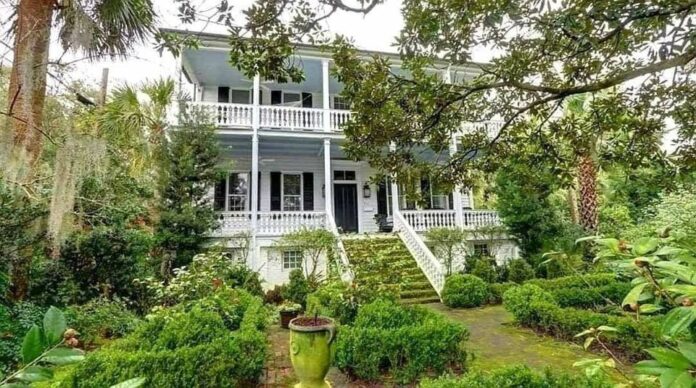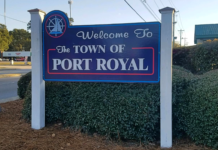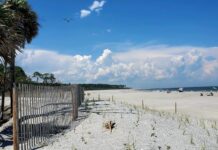
State judge sides with Historic Beaufort Foundation in easement debate over Robert Smalls House
Continued efforts to protect and preserve the historic McKee-Smalls home where South Carolina hero Robert Smalls lived in downtown Beaufort earned major court victories in January.
South Carolina Circuit Court Judge Courtney Clyburn Pope agreed with Historic Beaufort Foundation that its preservation and conservation easement on the McKee-Smalls House at 511 Prince Street clearly limits public access and restricts the property to residential use only.
Judge Clyburn Pope also dismissed Billy Keyserling and Paul Keyserling’s motion for a summary judgment in the same case. The Keyserling brothers bought the historic house in 2021 for $1.675 million after signing a Memorandum of Understanding with the National Trust for Historic Preservation.
Their agreement basically called for the National Trust to raise money to buy the house from the Keyserlings while operating regular tours of the house.
The Keyserlings agreed to provide the National Park Service with access to the McKee-Smalls House for public tours and to explore renting the property to the National Park Service or its staff for residential use. The judge noted there wasn’t any evidence of an agreement for the Keyserlings, National Trust or National Park Service intended use of the property for residential purposes as required by the easement.
The Conservation and Preservation Easement of the McKee-Smalls House protects the exterior architectural integrity of the house and grounds as well as ensuring the house remains a private residence while allowing some public access, according to the easement terms and the intentions of the easement donor.
“Judge Clyburn Pope examined the evidence before her, primarily the easement that the Keyserlings entered into when they bought the property, and she found that the rule of law supports our position and the clear language of the easement,” said Wayne Vance, Chair of Historic Beaufort Foundation.
“This is an important ruling not only to preserve the McKee-Smalls house but also to protect the integrity of the Historic District,” Vance said.
The house has been a private residence since it was constructed, but the Keyserlings attempted to change that by opening the residence to tour groups on a regular, sometimes daily, basis – in violation of the property easement.
Robert Smalls was born into slavery in Beaufort County, became a Civil War hero, was elected to US Congress and in his later years served as Collector of the Port of Beaufort. His offices were in what is now known as the Thomas Law building but was then the Customs House (920 Bay Street) in downtown Beaufort.
David and Marilyn Atwell donated the property easement to HBF in 2002 to “assist in preserving and maintaining the premises and its architectural, historical and cultural features,” according to the legal document, and to ensure that the home would be used only as a residence.
For 20 years, and each time the McKee-Smalls house has been sold, that easement is part of the deed. When a property encumbered by an easement is sold, real estate agents are obligated to fully explain the meaning of the restrictions to the new buyer. Easements are recorded with the deed and protect the property forever, HBF Executive Director Cynthia Jenkins said.
The easement addresses only the exterior of the property and the grounds at 511 Prince Street in Beaufort’s National Historic Landmark District. The interior has seen extensive updating over the past decades. HBF would accept an interior easement to further protect the property.
The U.S. Secretary of the Interior’s Standards are the guiding principles for maintaining the integrity and significance of historic buildings. The first of the 10 Standards states that buildings should be used for their original purpose as much as possible – in this case, a private home.
Historic Beaufort Foundation is a 501(c)3 nonprofit education foundation created to preserve, protect, and present sites and artifacts of historic, architectural, and cultural interest throughout Beaufort County, South Carolina. For more information, you can visit historicbeaufort.org. For more information on the life of Robert Smalls, visit here.









